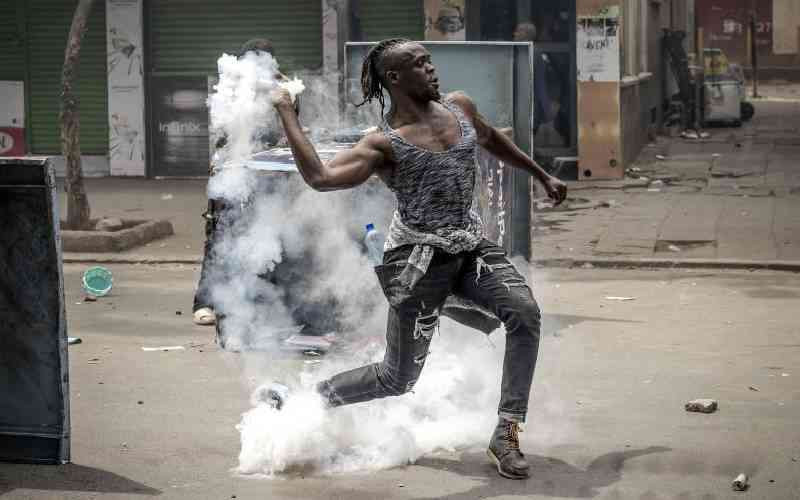
Who’s next on Kenya’s abduction list? This is the haunting question that lingers in the minds of Kenyans and foreigners alike.
According to the Kenya National Commission on Human Rights (KNCHR), 82 cases of abductions and enforced disappearances were recorded between June and December 2024.
The victims include politicians relatives, political activists, human rights defenders—both local and foreign—social media commentators, and even cartoonists.
Abductions in Kenya are not a new phenomenon, nor did they begin during or after the anti-tax protests.
Historians note parallels between these incidents and tactics used by British colonialists during the independence struggle, where vocal freedom fighters were abducted, detained without trial, and later released.
Renowned historian and foreign policy expert Professor Munene Macharia described the current wave of abductions as a gross violation of human rights.
“It is a tactic that can be traced to colonial times; remember the likes of Mekatilili wa Menza and Harry Thuku in 1914 and taken to Kisimayu in Somalia,” explained Munene.
“Abductions incognito are repressive. The intent is to silence dissenting voices, but is it working?” he posed.

Kenya’s UNHRC seat
These developments come as Kenya recently secured a seat on the United Nations Human Rights Council (UNHRC).
But, human rights advocates warn that the rising number of abductions and disappearances tarnishes Kenya’s image on the global stage.
“Kenya already has a poor human rights record. Being part of a global platform while grappling with forced disappearances, arbitrary arrests, and extrajudicial killings is deeply hypocritical and raises serious concerns,” Kennedy Wanyoike, a human rights lawyer told The Standard.
The abductions are often carried out in broad daylight, with some victims suffering life-threatening injuries inflicted by hooded individuals believed to be police officers.
Ernest Connell, a communications officer with the Kenya Human Rights Commission, revealed that many victims reported being tortured and questioned about protests and their alleged funders.
Stay informed. Subscribe to our newsletter
“These interrogations suggest the involvement of state security agencies, since the questions most of the victims were being asked related to what the government would appear to be afraid of. Most of those we engaged revealed that they asked why they were protesting and who their funders were,” Connell stated.
IPOA investigations
The Independent Policing Oversight Authority (IPOA), led by Anne Makori, acknowledged challenges in investigating these cases, noting that many victims have been reluctant to cooperate.
“IPOA is unable to access victims of these unlawful arrests, abductions, and disappearances. It therefore requests victims and any other relevant eyewitnesses to come forward and record statements to facilitate speedy investigations of these allegations.”

Human rights groups report that many victims of abductions are vocal government critics, with a significant number being social media influencers active during anti-tax protests.
The KNCHR noted that four social media users were abducted and later released after posting AI-generated images of President William Ruto, deemed offensive by authorities.
Senator Okiya Omtatah was among those arrested on December 30, 2024, while protesting the abductions.
Ripple effect
Foreign policy expert Munene Macharia warned that the abductions could harm Kenya’s international reputation, particularly given incidents involving foreign nationals.
The kidnapping of Ugandan opposition leader Kizza Besigye in Nairobi last November raised questions about Kenya’s security.
Besigye, a critic of Ugandan President Yoweri Museveni, is viewed as a political target, with his abduction suggesting cooperation between Kenyan and Ugandan security agencies.
Similarly, the abduction of Tanzanian journalist and human rights defender Marie Tsehai Sarungi in Nairobi on Sunday has also drawn global condemnation. International bodies have urged Kenya to address these violations and uphold human rights.
This comes even as the fate of four Kenyans; Kulani Muema, Martin Nziuku, Justus Mutumwa, and Steve Mbisi remains unknown after they were abducted in Mlolongo in December 2024.
The abductions risk undermining Kenya’s image as East Africa’s largest economy and a premier tourist destination.
Prominent hotelier Mohammed Hersi expressed frustration over the trend, remarking: “Abductions must stop. We have courts and legal systems. Kenya must not become a failed state.”
The Kenyan government now faces growing pressure to address the abductions, protect civil liberties, and restore public confidence, as promised by President William Ruto in one of his many speeches.



